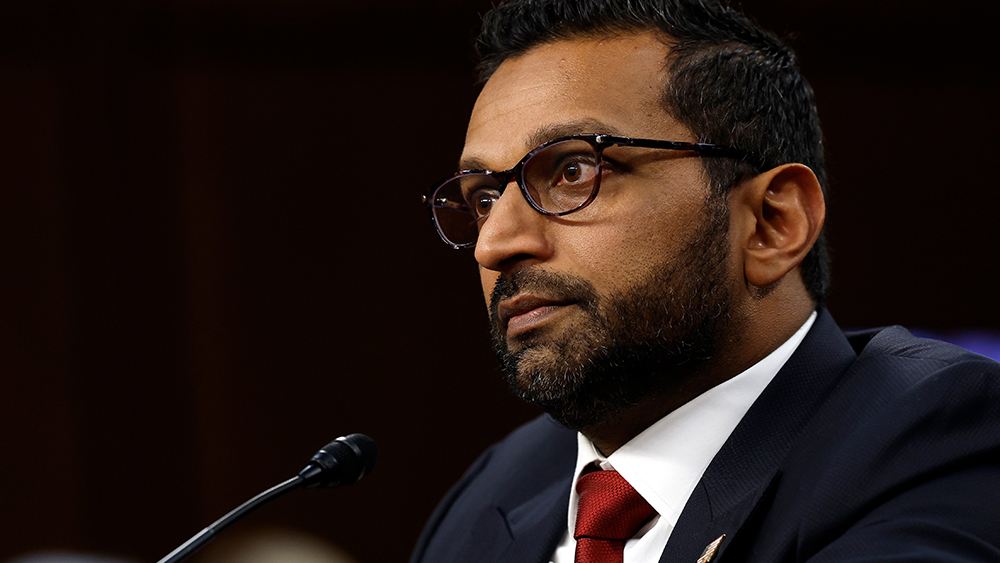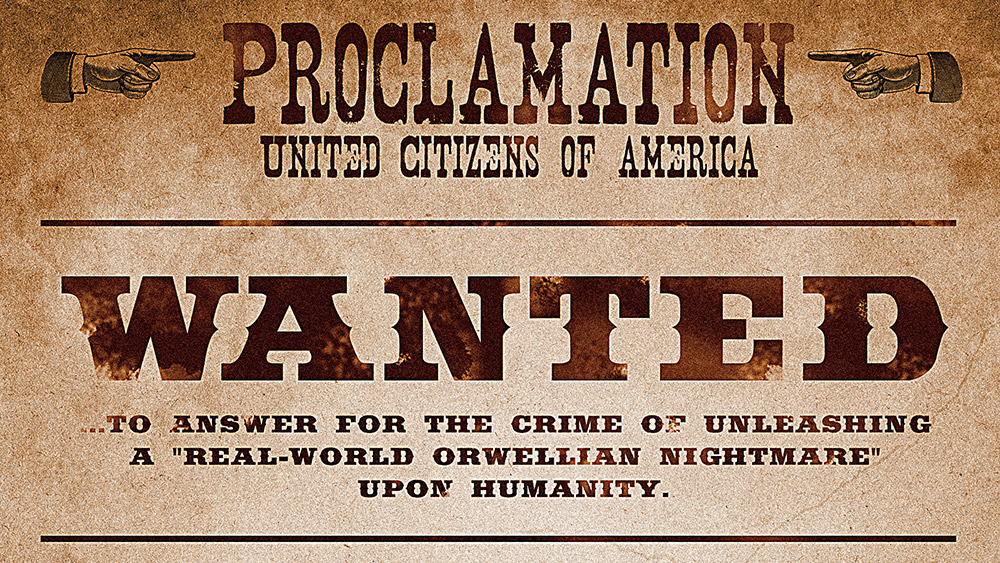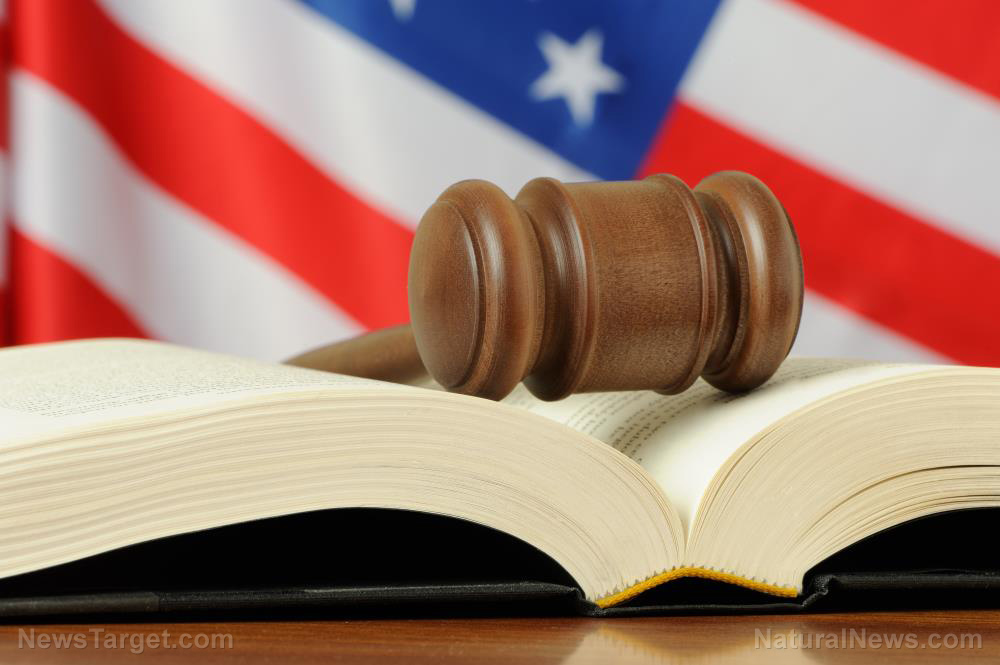U.K. government’s controversial bill raises alarms: Welfare system at risk of turning into surveillance network
02/10/2025 / By Willow Tohi

- The U.K. government is pushing for rapid passage of the Public Authorities (Fraud, Error & Recovery) Bill, aimed at tackling benefit fraud and reducing errors in the welfare system, despite concerns from privacy advocates and opposition MPs.
- Critics, such as Big Brother Watch, argue that the bill’s rushed introduction leaves insufficient time for MPs to thoroughly review its implications, raising concerns about meaningful scrutiny in a democratic process.
- The bill grants the Department for Work and Pensions (DWP) extensive powers to monitor bank accounts, revoke driving licenses and conduct searches of homes and devices, which critics claim could lead to widespread surveillance of vulnerable individuals.
- The bill is seen as part of a broader trend of increasing state surveillance and data collection, potentially undermining British values of fairness and justice, especially for the most vulnerable members of society.
- Advocates and critics urge for a more transparent and thorough process, emphasizing the need to balance state power with individual rights and privacy, as the bill moves through parliament.
In a move that has sparked widespread concern among privacy advocates and opposition MPs, the U.K. government is pushing for the rapid passage of the Public Authorities (Fraud, Error & Recovery) Bill. Critics argue that the legislation, introduced just a week ago, threatens to transform the welfare system into a government-run financial surveillance network, with far-reaching implications for personal privacy and civil liberties.
A rushed and controversial bill
The 116-page bill, which aims to tackle benefit fraud and reduce errors in the welfare system, has been met with immediate skepticism. Rights campaigner Big Brother Watch has raised concerns that MPs may not have sufficient time to thoroughly review the legislation before debates begin. The organization points out that the bill’s rapid introduction and scheduling leave little room for meaningful scrutiny, a process that is crucial in a democracy.
Silkie Carlo, Director of Big Brother Watch, emphasized the urgency of the situation: “This bill is being rushed through parliament with inadequate scrutiny. MPs need time to read and understand the full implications of these sweeping powers, which could fundamentally alter the relationship between the state and its citizens.”
The scope of the bill: Mass surveillance and intrusive powers
At the heart of the controversy are provisions that grant the Department for Work and Pensions (DWP) extensive powers to monitor bank accounts, revoke driving licenses and conduct searches of homes and devices. Critics argue that these measures go far beyond what is necessary to combat benefit fraud and could lead to widespread surveillance of the most vulnerable members of society.
“The U.K.’s welfare system would be turned into a digital surveillance system with unprecedented privacy intrusions,” Carlo stated. “This is not just about catching fraudsters; it’s about creating a two-tier system where the most at-risk individuals—elderly, poor and disabled—face constant scrutiny and potential mistreatment.”
The DWP maintains that it will only access bank statements of accounts suspected of defrauding the benefits system and will not have direct access to actual accounts. However, privacy groups argue that the requirement for banks and building societies to submit reports on suspected fraud opens the door to broader surveillance. This could enable DWP investigators to request search warrants and conduct searches in collaboration with the police.
Historical context and broader implications
The proposed bill is part of a broader trend of increasing state surveillance and data collection, a trend that has roots in the post-9/11 era of heightened security measures. However, the scope and intrusiveness of the Public Authorities (Fraud, Error & Recovery) Bill are unprecedented in the U.K., a country with a strong tradition of individual liberties and the rule of law.
In 2001, the introduction of the Anti-Terrorism, Crime and Security Act marked a significant shift towards increased state powers. Since then, various pieces of legislation have expanded the government’s ability to monitor and control citizens, often under the guise of national security or public safety. The current bill, critics argue, extends this trend into the realm of social welfare, potentially undermining the principles of fairness and justice.
Carlo highlighted the potential for catastrophic mistakes: “The most vulnerable in our society will be deprived of the right to be heard in court and become more susceptible to mistaken punishments. This bill does more damage to fundamental British values of fairness and justice than it does to serious fraudsters.”
Conclusion: A call for caution and scrutiny
As the bill moves through parliament, advocates and critics alike are calling for a more thorough and transparent process. The rapid introduction and scheduling of the legislation have raised concerns about the government’s commitment to democratic principles and the protection of individual rights.
Didi Rankovic, a prominent journalist and privacy advocate, urges the public to stay informed: “If you’re tired of censorship and surveillance, it’s time to speak up. Subscribe to Reclaim The Net to stay updated on the latest developments and join the fight for your privacy and civil liberties.”
The Public Authorities (Fraud, Error & Recovery) Bill represents a significant moment in the ongoing debate over the balance between state power and individual rights. As the U.K. government seeks to modernize its welfare system, it must do so in a way that respects the principles of fairness, justice and privacy that have long defined British society.
Sources include:
Submit a correction >>
Tagged Under:
big government, dangerous, data collection, freedom, Glitch, liberty, mass surveillance, money supply, obey, Orwellian, personal data, police state, privacy watch, suppressed, tyranny, United Kingdom, watched, welfare, welfare fraud, welfare system
This article may contain statements that reflect the opinion of the author
RECENT NEWS & ARTICLES
COPYRIGHT © 2018 WATCHED.NEWS
All content posted on this site is protected under Free Speech. Watched.news is not responsible for content written by contributing authors. The information on this site is provided for educational and entertainment purposes only. It is not intended as a substitute for professional advice of any kind. Watched.news assumes no responsibility for the use or misuse of this material. All trademarks, registered trademarks and service marks mentioned on this site are the property of their respective owners.
















